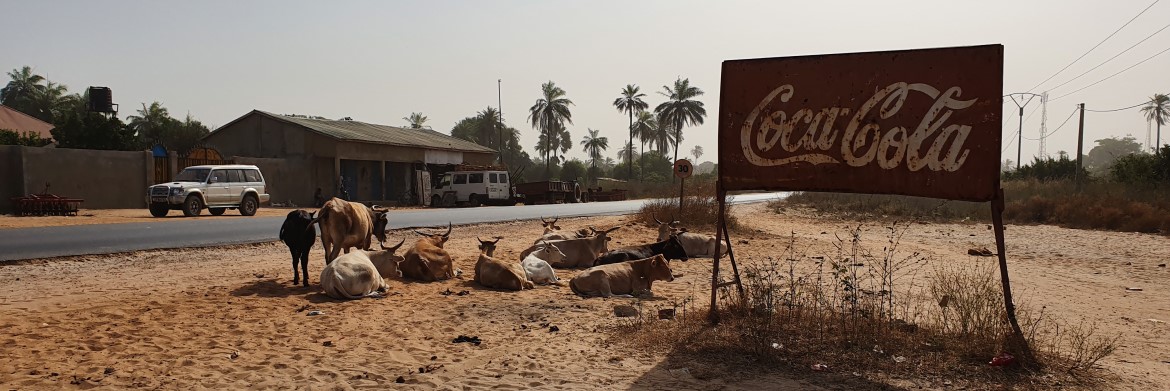At the beginning of January, Dirk Depoorter and Dirk Fannes go on a mission to The Gambia. Together with the local Gammol team, they want to evaluate the operation in Gambia, visit projects of the past year, prepare new projects, make agreements with local authorities and with local suppliers. Dirk Depoorter made a travelogue. This is the second part, part 1 you will find lower ...
5 January 2020
New nursery school in Kartong
Sunday, but no rest day ...
We start our day with a visit to the new school that we had built in Kartong for the VZW Halaai Xale from Astrid. Our employees Omar and Lamin helped building the school, under the supervision of a contractor Momodou Faye. It is clear that they have learned a lot in building the school. The finishing has yet to be done, but it is already visible with how much care and attention to detail the school has been constructed, very high quality. This is the quality that we must strive for: tiled floors, finished and sealed roofs, finished ceilings (allowing better insulation against the heat). Nice work!
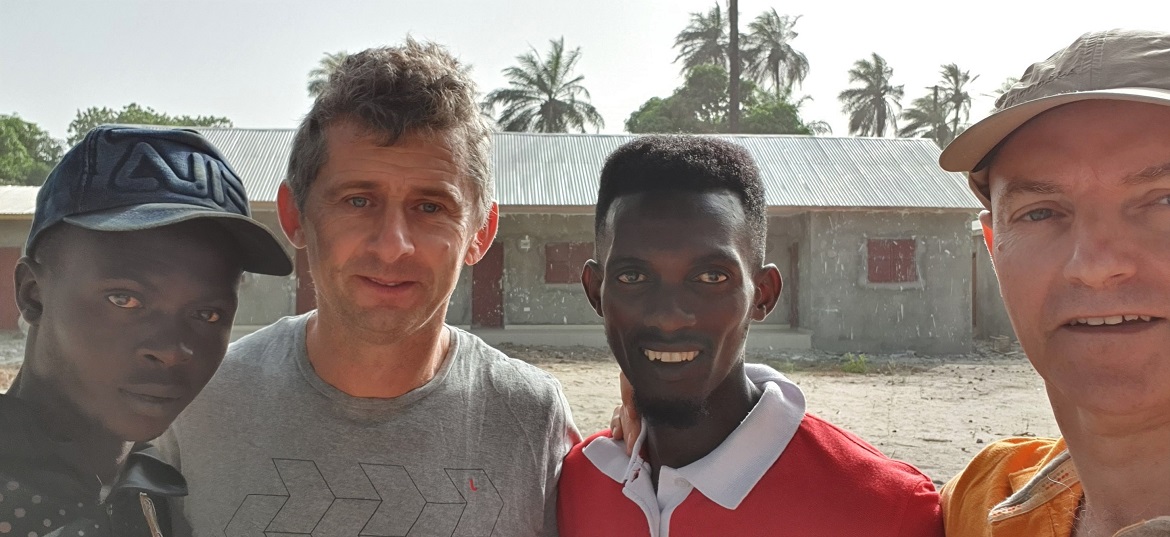
Lamin, Dirk F, Omar en Dirk D in front of the new school in Kartong
We just jump into Astrids house, where we see Batou again. The purpose of this visit is to see the size of the house, which installations are provided... As inspiration for our plans.
Bamindorr
In Bamindorr, Omar and Lamin, along with the village, have placed extensions. We visit the different extensions. There are 7 extensions in Bamindorr and it is nice to notice that they all work and are used! When we arrive at the pump installation itself, we are warmly welcomed by the village council. Omar addresses them immediately, and we notice that he picks up our previous groceries, and starts working on it himself: maintenance of the pumps, cleaning of the solar panels, repair of demolished cranes, construction of a piggy bank for repairs, etc. , that's what we want to see from Omar.
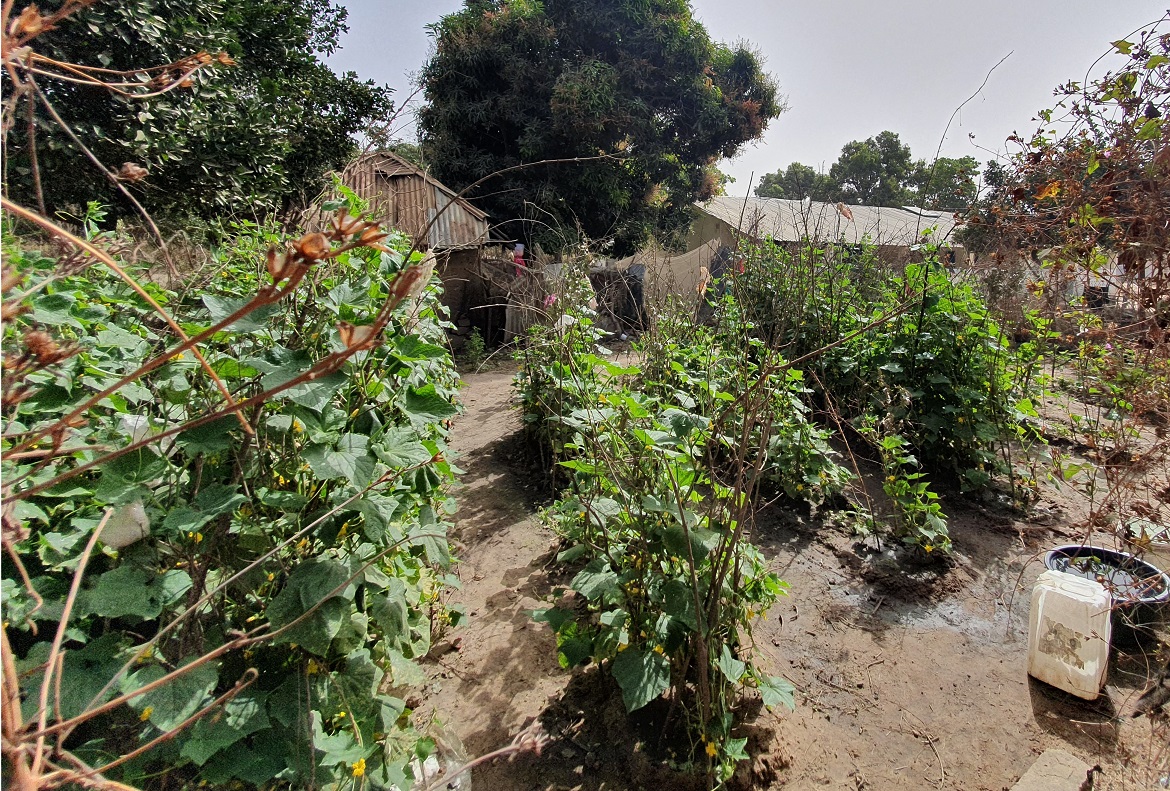
Vegetable gardens in Bamindorr, which use the water from our pump. Top!
Falaa
Then we visit our pump in Falaa, and there too the extensions have been placed by Omar and Lamin, together with the villagers. The installation is a bit older, and a construction has been placed above the taps, so that they cannot be stolen. One of the taps is drained for a private garden. And when we look at the extensions, we notice that one of the extensions is also tapped for a private home. That is of course not what we want to achieve with our pumps. Of the 6 extensions that have been placed, 1 is in the hands of a private person. It is unclear whether agreements have been made on this or not?
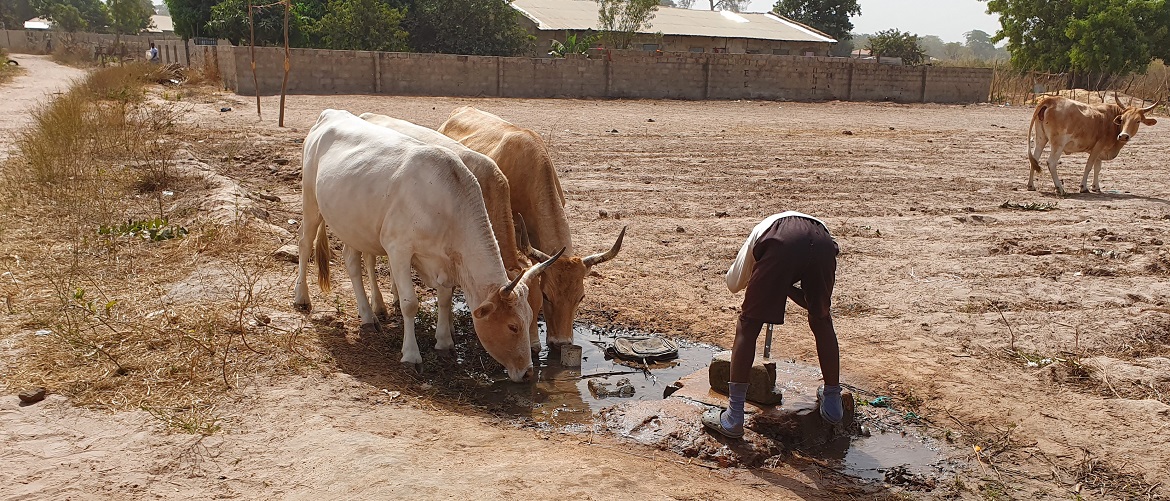
Thanks to this water, a vegetable garden will soon come here too
Own property
During our meeting with the VDC from Sanyang, we indicated that we were interested in a well-located building plot. The idea behind this is to be able to build something, where we could invite our sponsors, where training can be given, or simply as a hotel for vacation. We would invest 100% of the proceeds in our projects in The Gambia. Our next stop is therefore to visit a land in Sanyang, but that does not correspond to what we are looking for ...
Sanyang Beach
Next short stop, on the way to the fish market on the beach of Sanyang, is an old water pump powered by a windmill. Probably one of the first pumps installed by Gammol. The pump no longer functions ...
We continue to the beach, where we look at the pump that supplies water to the fish market, a building that was also set up by Gammol and whose roof we recently repaired. The water pump and the building where the pump is in are in poor condition but working. Leaking pipe, moldy walls. We walk to the fish market, a few hundred meters further. One of the faucets is leaking. Omar is approached by one of the managers of the market, who asks us to repair everything. Apparently the fish market pays an amount to Sanyang village for the use of the water. Omar appeals to us and we make it clear to the person in charge of the market that we will only do repairs if it is paid for. No more everything for free. In this way we hope that they themselves become responsible and take care of their installation. We cannot invest every dalasi that we have to invest in repairs in projects. Unless they are defects that are not due to irresponsible use, we decide to let pay for our repairs.
Bunkele Nema
Last source we visit today is this one from Bunkele Nema. The pump that stands on the floor of the old Lamin, a retired Gammol employee, but that is apparently also used by the gardens of the compounds in the area. Pump works on electricity.
Prepare MoU
We spend the rest of the day preparing the new MoU (memorandum of understanding) for the further use of our Gammol house in Sanyang, agreements we have to make with Omar and Lamin, and discussing alternatives regarding the use of our Gammol house.
We also have an appointment with the owner of the hotel where we stay, to discuss our plans to buy a plot of land on which we can build. She has land next to the hotel, and she is willing to sell this. Very nice view of the ocean, from a hill, 500m from the sea ... to be continued.
6 January 2020
Gammol house
Monday morning we discuss with Omar and Lamin in our Gammol house to find out what it takes to upgrade the Gammol house at no big extra cost. So that we can provide the students and nurses who come to do an internship or work here with more than decent accommodation. And so that the other rooms can also be used as offices and reception areas. In addition, the garage must be given a different purpose as a meeting room for the VDC. They are a number of much-needed repairs and renovations, but without major investments.
Visit Gunjur
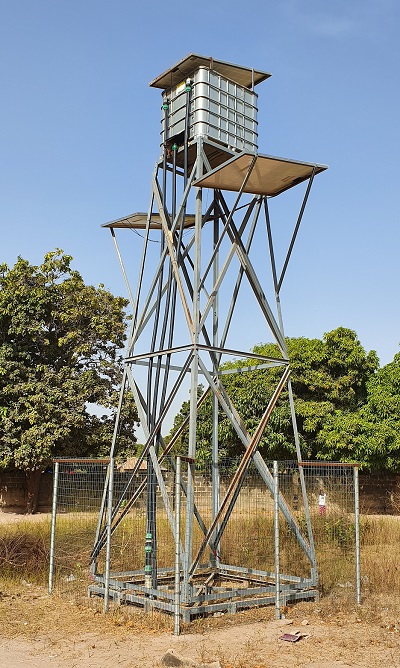 We visit one of our larger installations in Gunjur: higher tower, 3 solar panels, built in 2011. Here too we have to explain how to maintain and keep the panels clean. A little further in the village we see a second installation, placed by the Lions, double water barrel, 8 panels (also dirty). In the village 11 cranes and they have connected the 2 installations. Beautiful!
We visit one of our larger installations in Gunjur: higher tower, 3 solar panels, built in 2011. Here too we have to explain how to maintain and keep the panels clean. A little further in the village we see a second installation, placed by the Lions, double water barrel, 8 panels (also dirty). In the village 11 cranes and they have connected the 2 installations. Beautiful!
Good conversation with the village leaders, who are very grateful to us. We notice that the installations are handled with care. For example, are all faucets placed in a concrete base to protect them against damage?
Before we return to our Gammol home, we visit the man who received the wound care training from Mien and Marijke. He shows us his material and logbook. Good to see how such a good result can be achieved with few resources.
Signing of the MoU
Back to the Gammol house, appointment with the VDC to sign the new MoU. Agreement for the next 10 years. The MoU as proposed by us is accepted and signed by the VDC and ourselves. Only the Alkalo (village elder) still has to sign, but that is a formality.
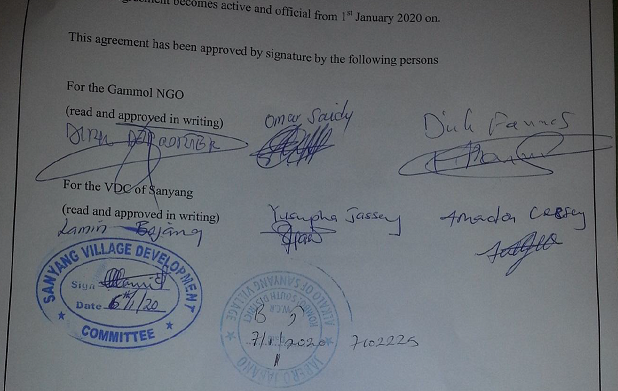 We agree that we will provide them with a room that the VDC can use for the further development of the village, and we will do all wath is necessary to improve the Gammol house. In return, we do not pay rent. In addition, we agree that we will continue to invest in projects in Sanyang, which is a logical agreement given the needs.
We agree that we will provide them with a room that the VDC can use for the further development of the village, and we will do all wath is necessary to improve the Gammol house. In return, we do not pay rent. In addition, we agree that we will continue to invest in projects in Sanyang, which is a logical agreement given the needs.
Own property?
In addition, we discuss with them our plan to buy a plot of land, and what our intention is ... whereupon Lamin Bojang, the chairman of the VDC, suggests that we look at another piece of land that might better meet our expectations. We also discuss what is needed to implement our plans. It is essential that we receive permission from both the VDC of Sanyang and the GTB (Gambia Tourism Board). VDC is already behind our project.
Together with Lamin Bojang we will look at the piece of land. Beautifully situated on the beach of Sanyang. On the left a villa of a Lebanese, on the right another Spanish NGO, Amigos de Gambia, who are also building. A ground of + -28 m on + -60 m. Lamin immediately arranges an appointment with the responsible official of the GTB in Serekunda.
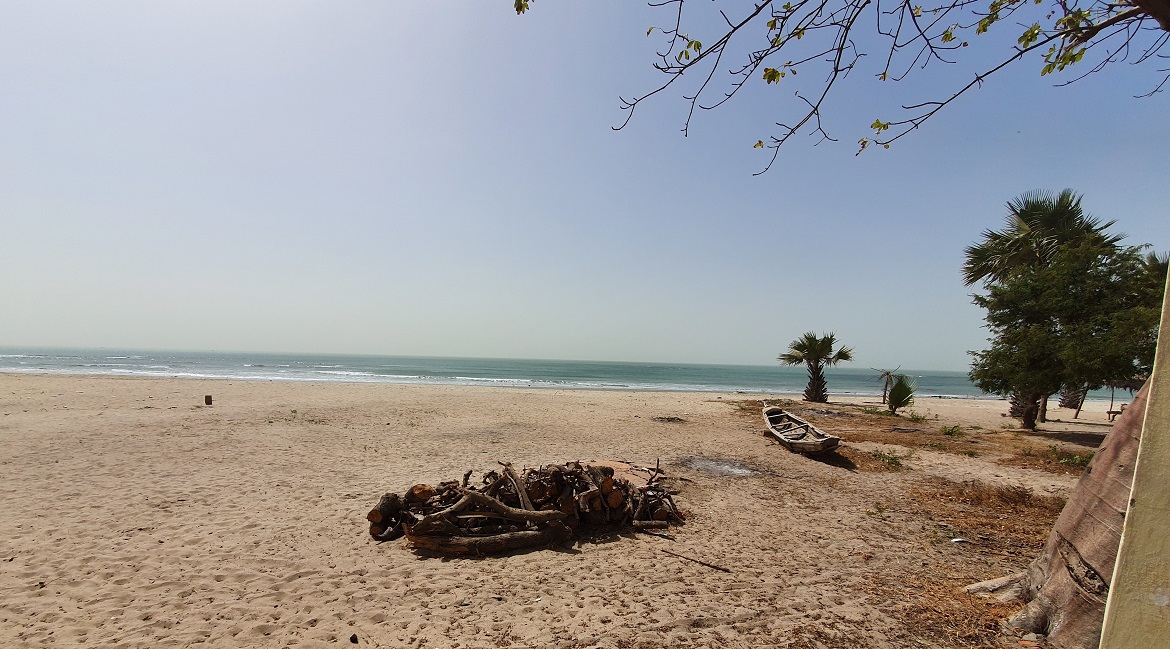
Serekunda
In the afternoon we went to Serekunda for a number of appointments:
- GTB: the official gives us a detailed explanation of what is needed to submit an application for our project on the beach at Sanyang. Simplified business plan. Work for when we are back in Belgium.
- SWE GAM: appointment with the owner, Ibrahim Cole. The pumps will now be installed with its help and installations. In collaboration with Omar and Lamin. In addition, we ask for his advice regarding the pump in Dimbaya Village, and we check for possible other locations where there would be a need for clean water. The community from Sinchuwuri (+ -500 people) would not have water, only during the rainy season. Situation there would be very serious. Something Omar will have to check.
- We are left with the idea that the need for pure water could be much greater in the interior of the Gambia. How we need the necessary information is not yet clear to us.
- Prime Stionary LTD: store where they sell copiers and scanners. We would like to install a kind of copy center in our Gammol house, where the schools can take the necessary copies as part of their lessons. Decision of visit: check what is possible in Belgium, and have it delivered with the next container
It is already evening when we arrive at our hotel. We still have an appointment to view the ground next to the hotel. Nice piece of land, nice view of the ocean, but not comparable with the piece of land on the beach of Sanyang. 2nd choice, if we cannot live up to our 1st choice.
7 January 2020
Last day
Fulakunku
Visit to our pump in Fulakunku. Pump installation in perfect condition. We are asked for a heavier pump or more solar panels, but here too we must first of all work on cleaning the panels. But a lot of care is taken of the rest. We are very warmly welcomed by the VDC and the village elders to thank us. In addition, about 20 women who are also waiting for us and start singing and dancing for us. So much enthusiasm, we can't help but dance together.
Yundum Hospital Center
Yundum Hospital Center: this is the location where we used to place an installation and wanted to draw extensions to a local school, which was refused. At first, we were therefore not prepared to invest further in this. After all, we were asked about extensions to the clinic and the maternity that is currently being built. What we see at the Hospital Center is nice: they have laid out a garden to grow vegetables, and are busy building a new maternity. We address the head of the center, Senior Nurse Adama Jobarteh, a super motivated lady, who explains to us what the needs are and why an extension to the school is not possible: the clinic needs clean water at all times, and they cannot count always on the local water and electricity company NAWEC (National Water & Electricity Company). Sometimes water just doesn't come from the Nawec faucets. The clinic cannot run the risk of having to work without water, which is why they want to continue to use the water pump to the maximum for the center. Amada insists, based on a conviction and motivation. We promise nothing, but it seems worthwhile to provide extensions here too. Against the wall we see a frame hanging from vzw De Gambiavrienden Belgium ...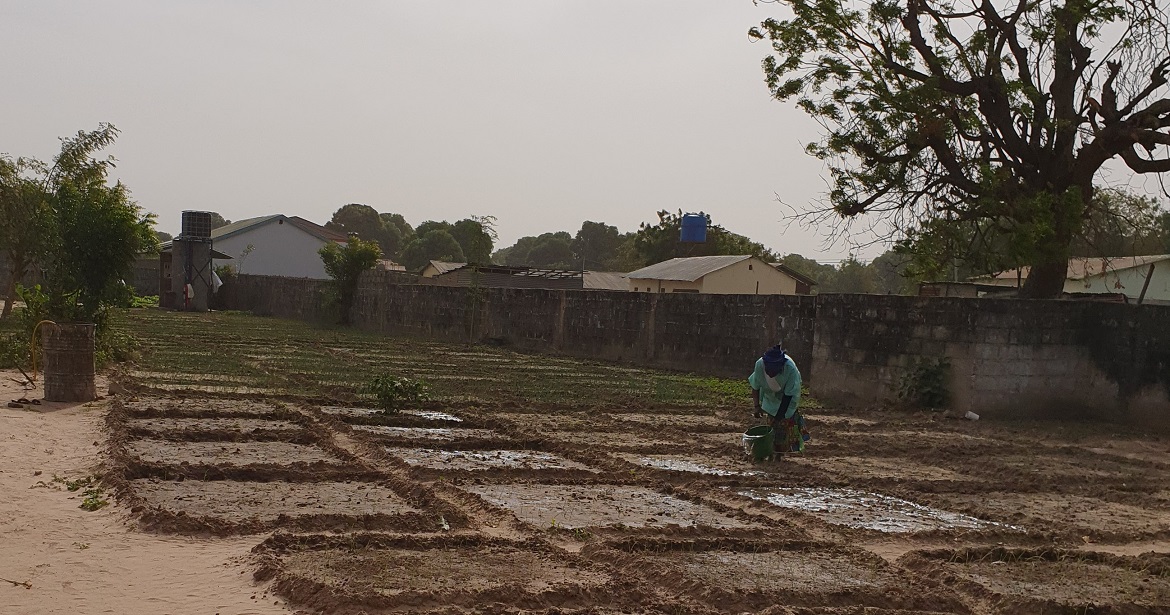
A beautiful vegetable garden, thanks to the water
Abuko
We visit our Gammol school in Abuko. Enthusiastic children, as always. We discuss the different needs of the school:
- Chairs for the students;
- The outer wall must be clad against rain;
- Tiling of the classes;
- Additional class measurements;
- Concreting behind the classes;
- Tiling the dining room;
- Repairing and tiling toilets;
- Installing a tap at the toilets;
- Repair the door of the teachers' toilet;
- Installing a water reservoir on top of the pump housing;
- Installing windows ...
After signing the guestbook, we leave. Here too we must see what we can do. To get to the level of the new school in Kartong, a lot needs to be done here.
We drive past the 2nd pump installed in Abuko. The different taps are used heavily. However, we notice that 1 of the water reservoirs is no longer connected, which means that the water supply is more limited, which can lead to problems in this large community. Repair seems appropriate here.
Brufut
Next stop is Brufut, where we have received a request to install an installation. We walk around the community, where there are several large villas, each with their own installation. In addition, a very large school, all students in uniform. Another school that we visit is perfectly fine. When we leave we see a tap with a container with a lock on it, so that no one can take water. Reason: state on private land. The man who shows us around cannot convince us of the need for a pump installation in Brufut.
Appointments with the local team
We end our day with a meeting with Omar and Lamin in our Gammol house. Lamin will also receive a salary from now on. And miraculously, Lamin surprises us with his English. Apparently he speaks English pretty well, but his embarrassment stops him from speaking it. We round off our visit by making clear agreements with Omar & Lamin.
We leave Tuesday evening, after a long taxi ride. Super busy on the job. It takes twice as long as coming in ... at 10.45 pm we leave for Belgium, to arrive by 5 in the morning.
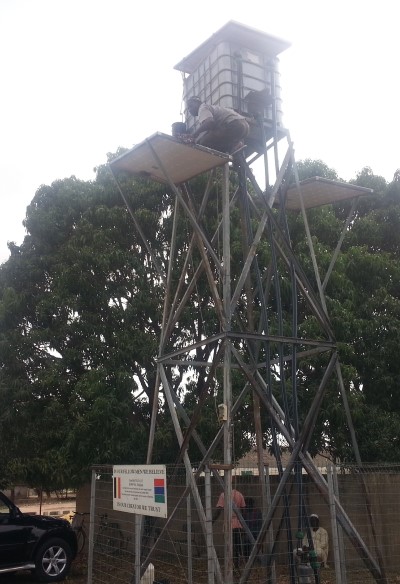

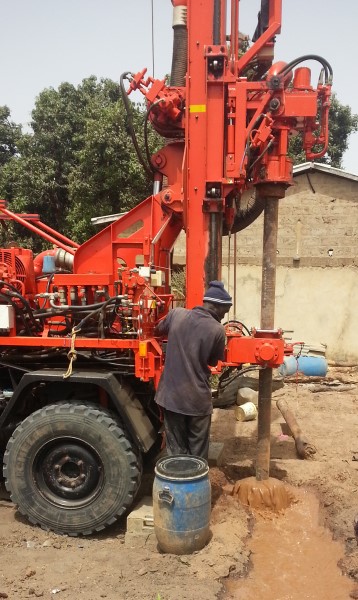 ;
;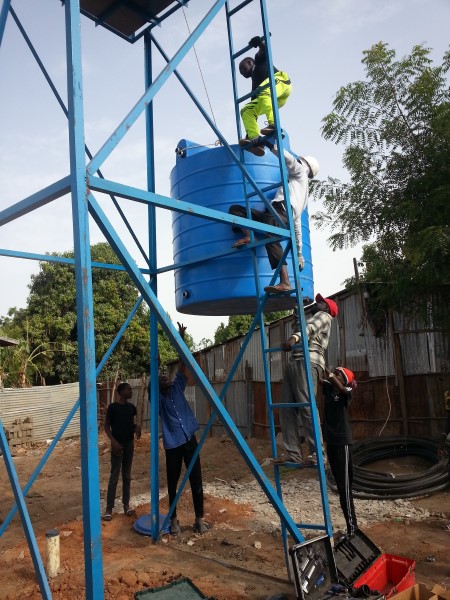
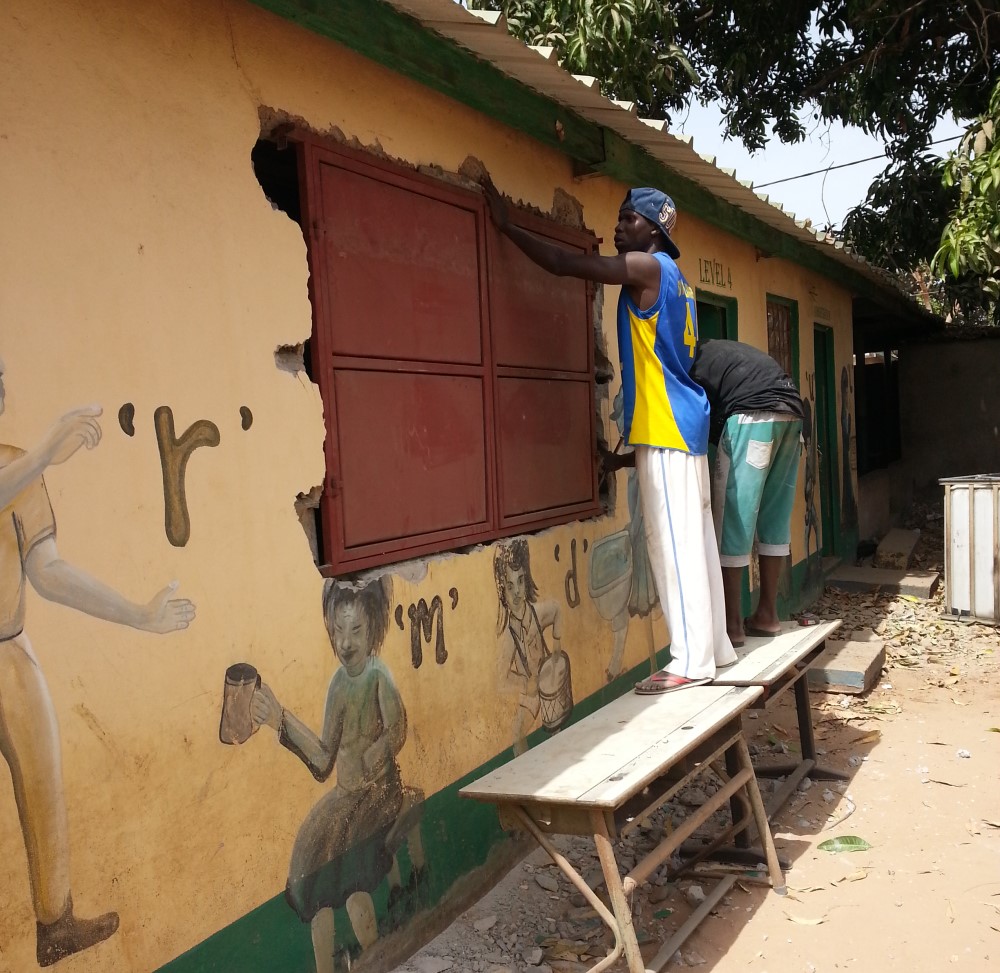
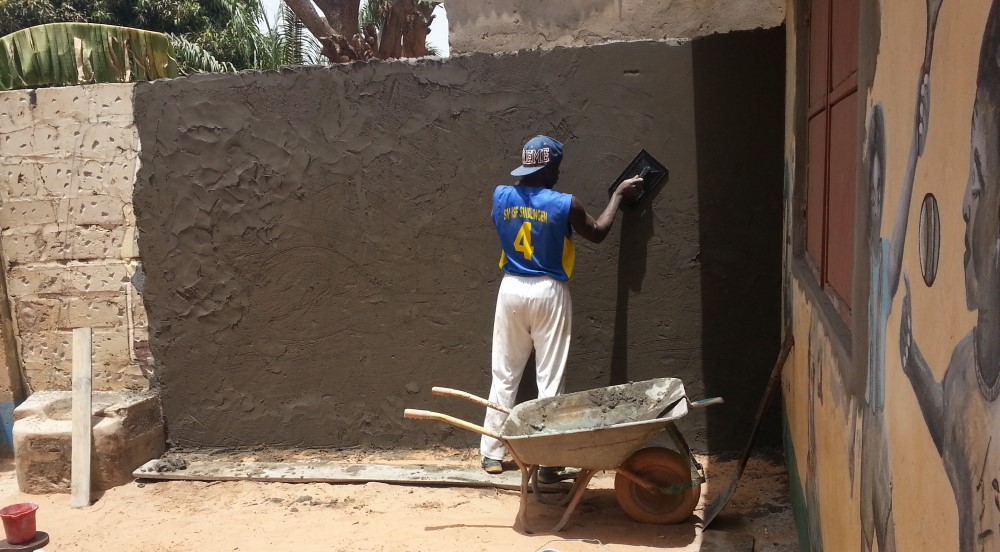
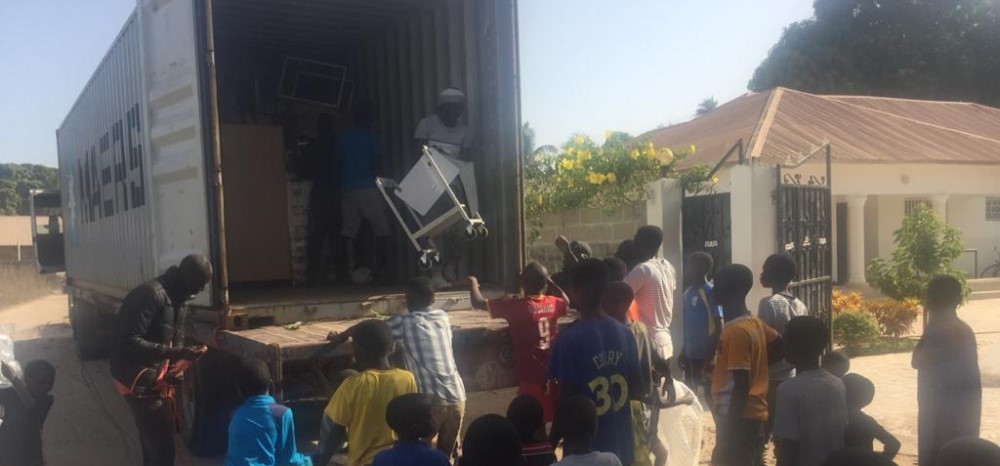
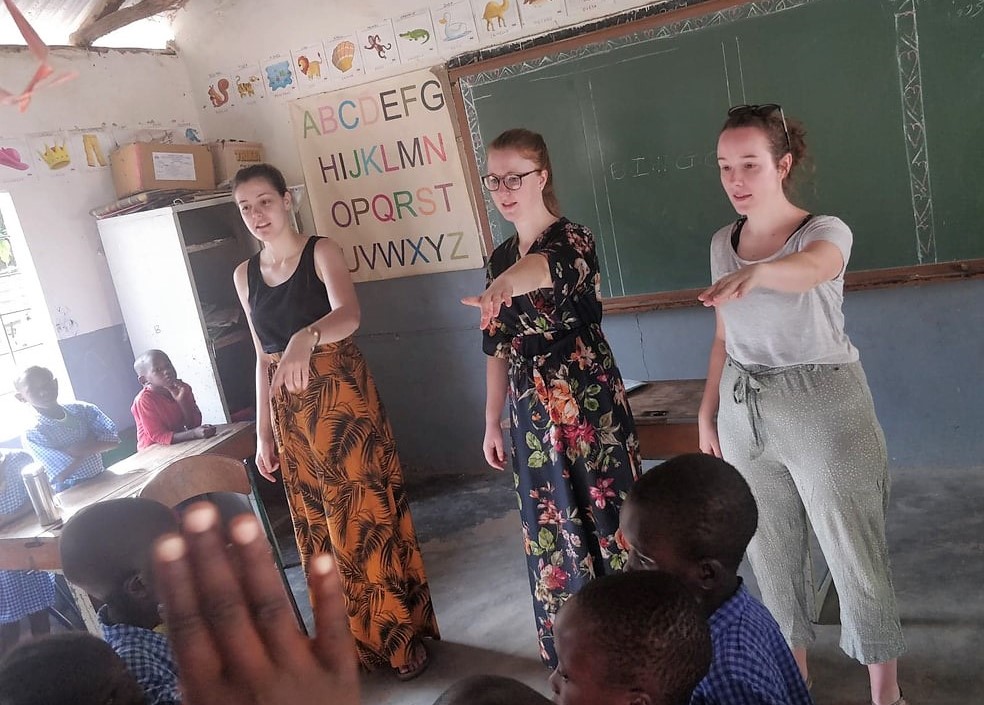
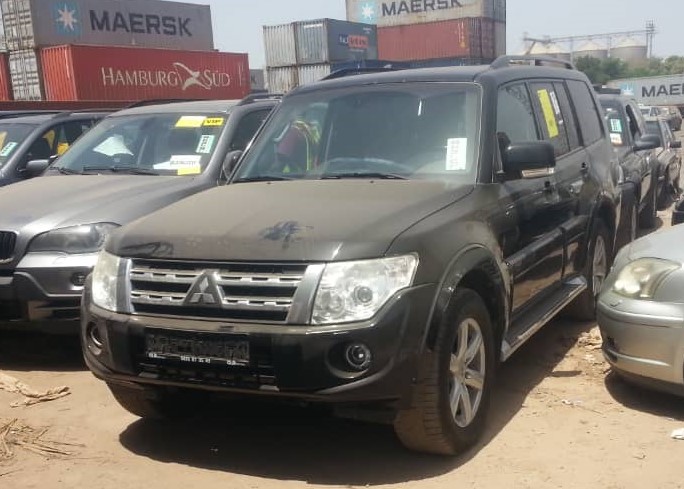
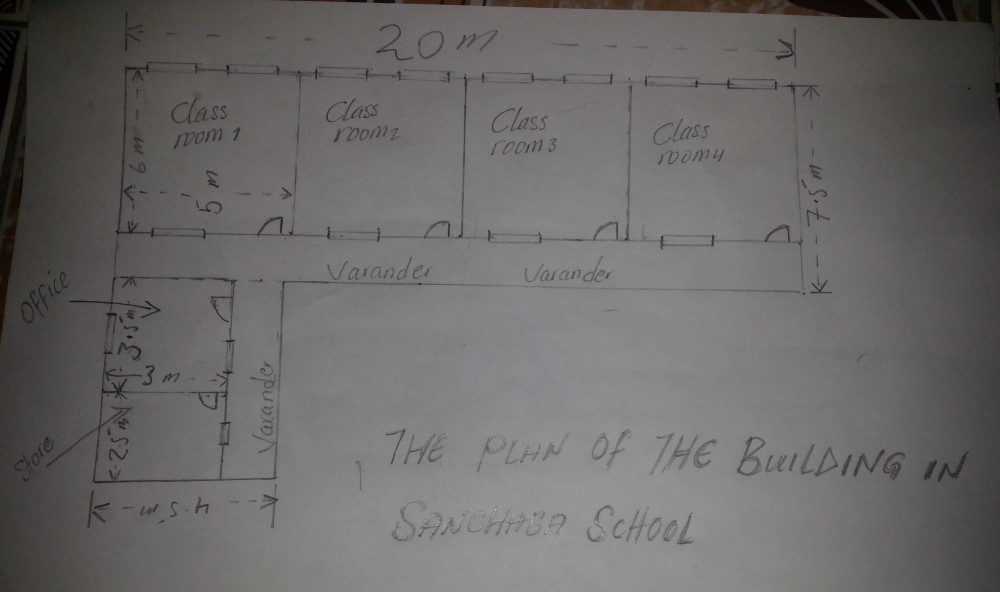
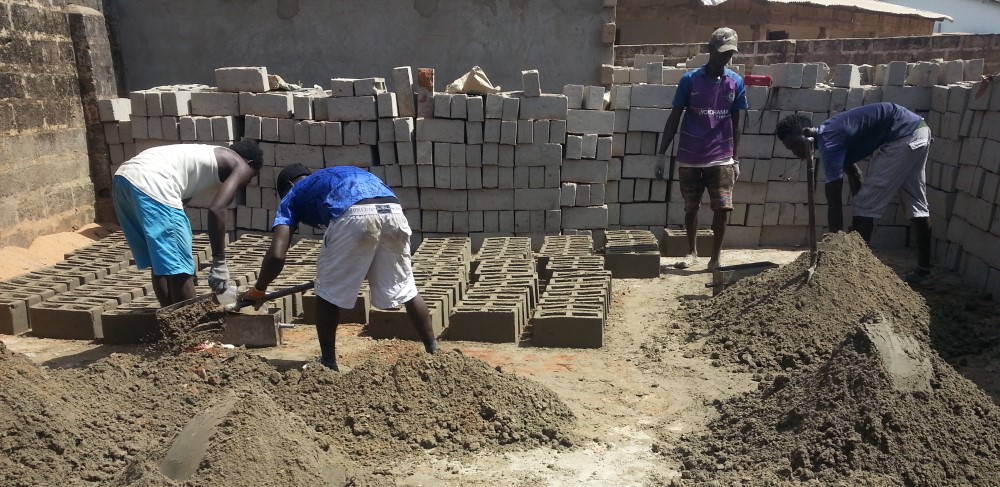
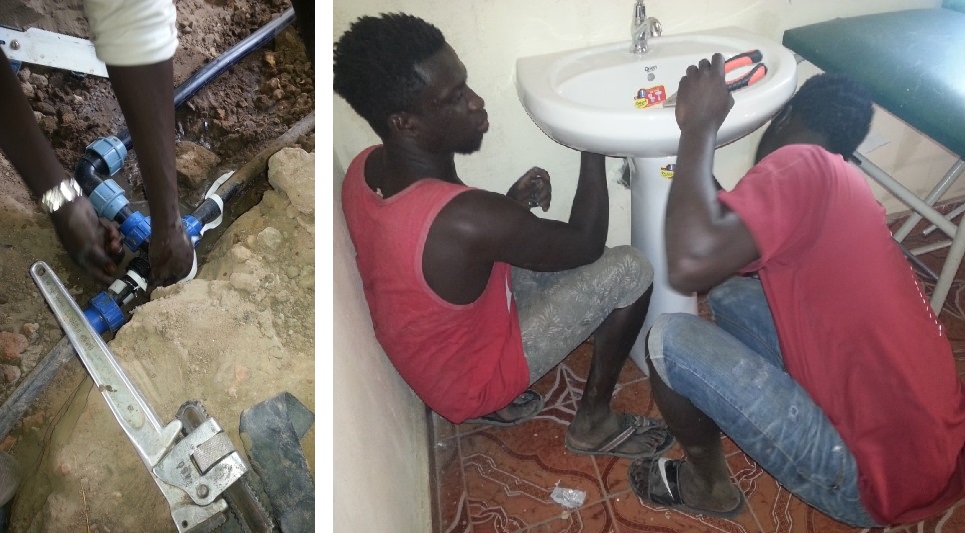
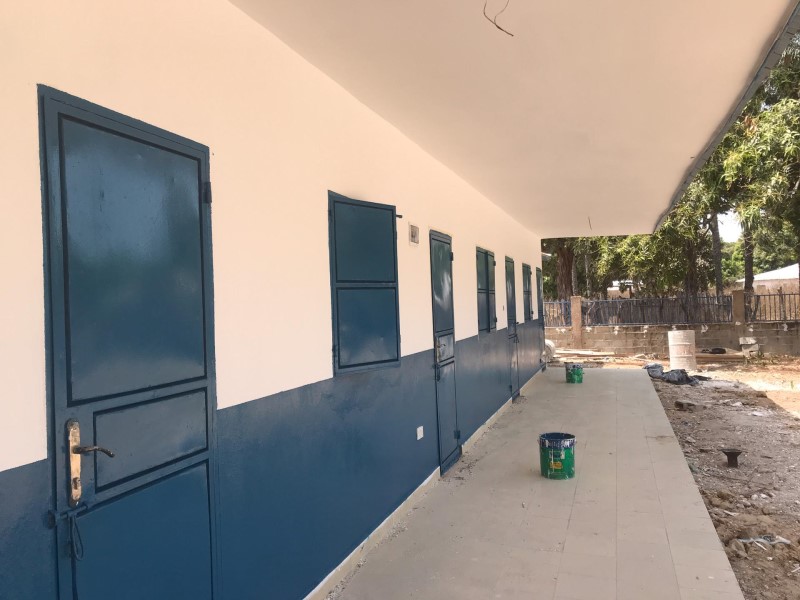
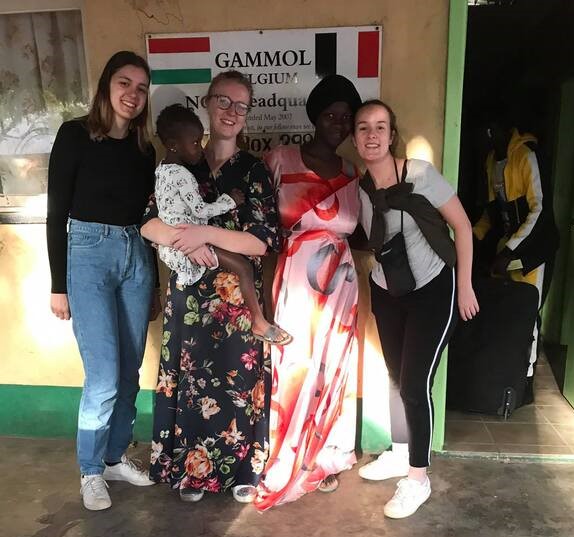
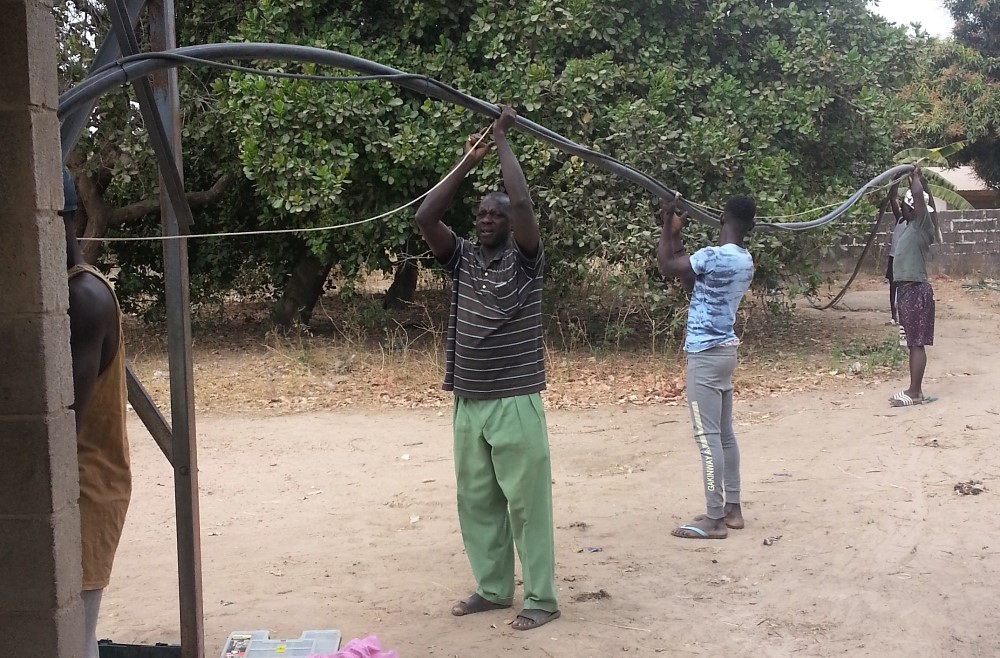
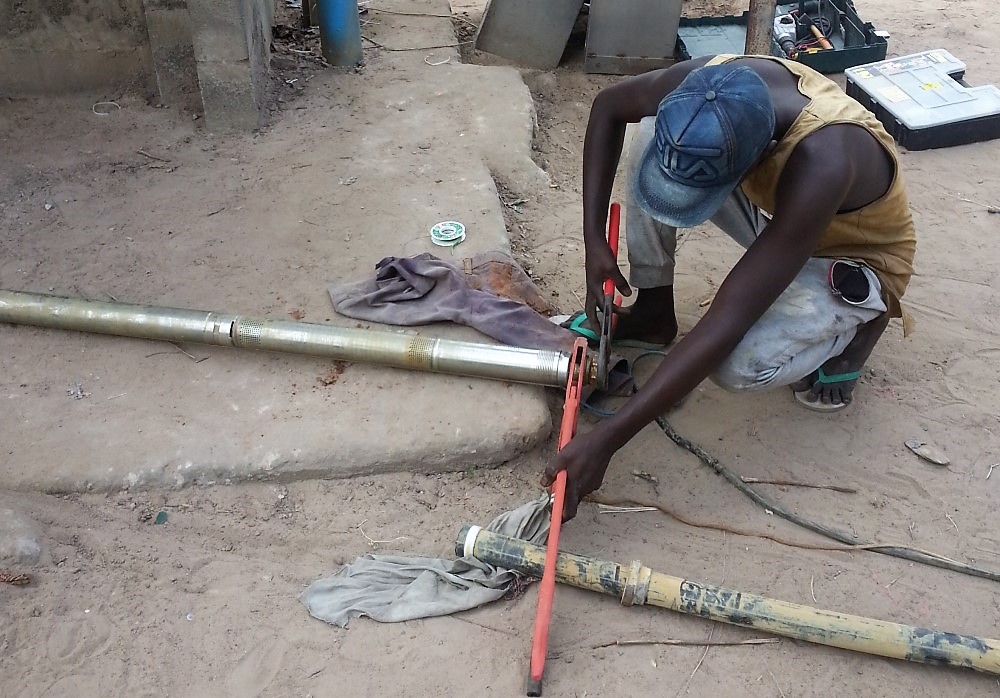
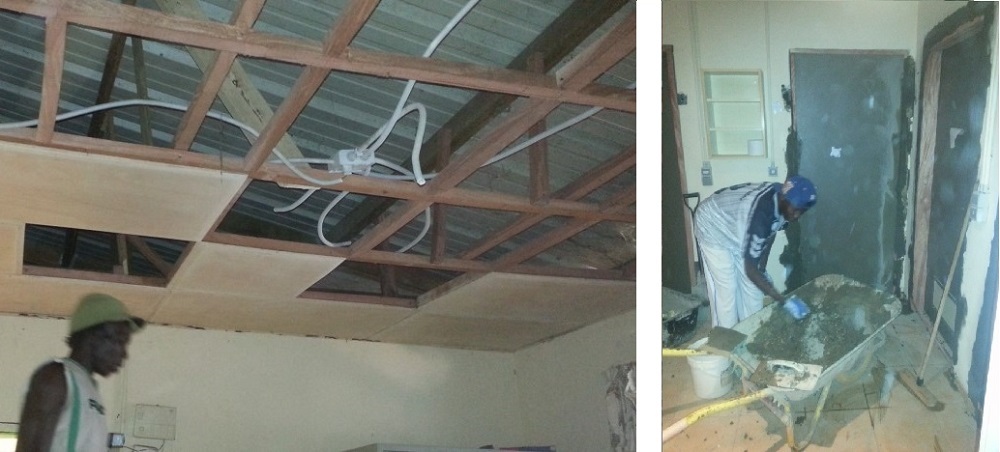



 We visit one of our larger installations in Gunjur: higher tower, 3 solar panels, built in 2011. Here too we have to explain how to maintain and keep the panels clean. A little further in the village we see a second installation, placed by the Lions, double water barrel, 8 panels (also dirty). In the village 11 cranes and they have connected the 2 installations. Beautiful!
We visit one of our larger installations in Gunjur: higher tower, 3 solar panels, built in 2011. Here too we have to explain how to maintain and keep the panels clean. A little further in the village we see a second installation, placed by the Lions, double water barrel, 8 panels (also dirty). In the village 11 cranes and they have connected the 2 installations. Beautiful! We agree that we will provide them with a room that the VDC can use for the further development of the village, and we will do all wath is necessary to improve the Gammol house. In return, we do not pay rent. In addition, we agree that we will continue to invest in projects in Sanyang, which is a logical agreement given the needs.
We agree that we will provide them with a room that the VDC can use for the further development of the village, and we will do all wath is necessary to improve the Gammol house. In return, we do not pay rent. In addition, we agree that we will continue to invest in projects in Sanyang, which is a logical agreement given the needs.

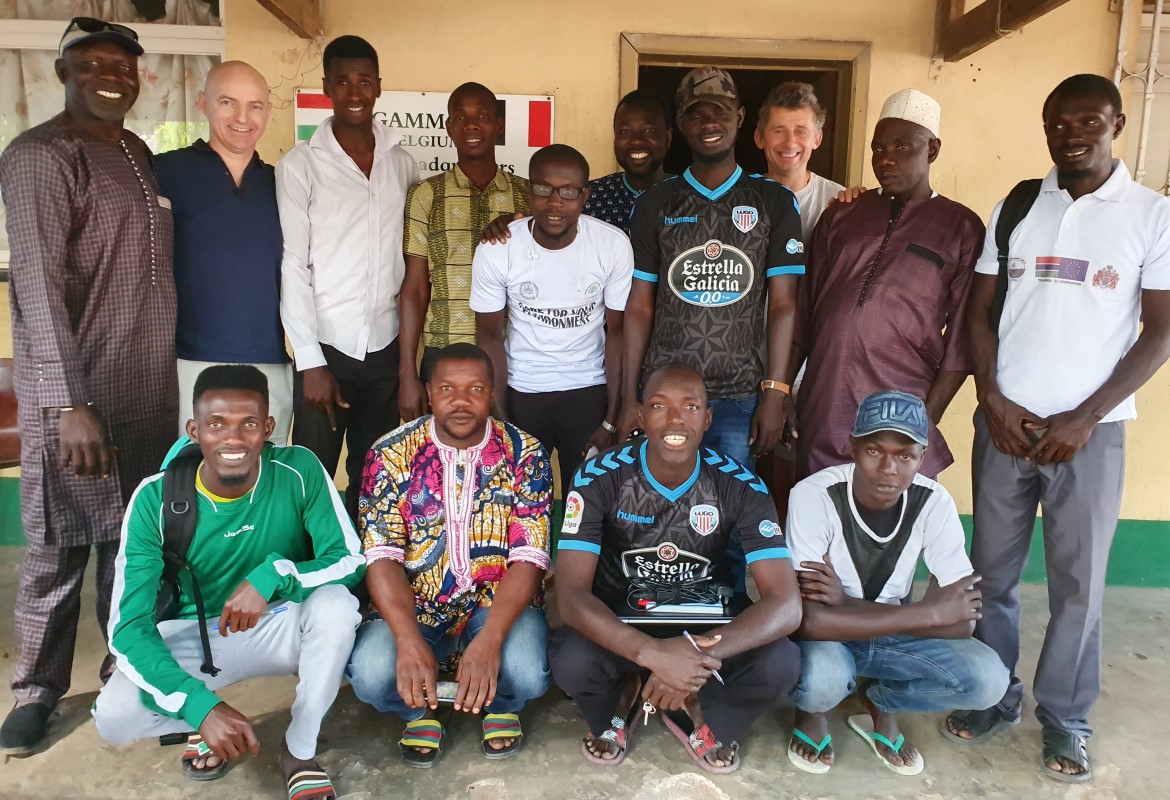
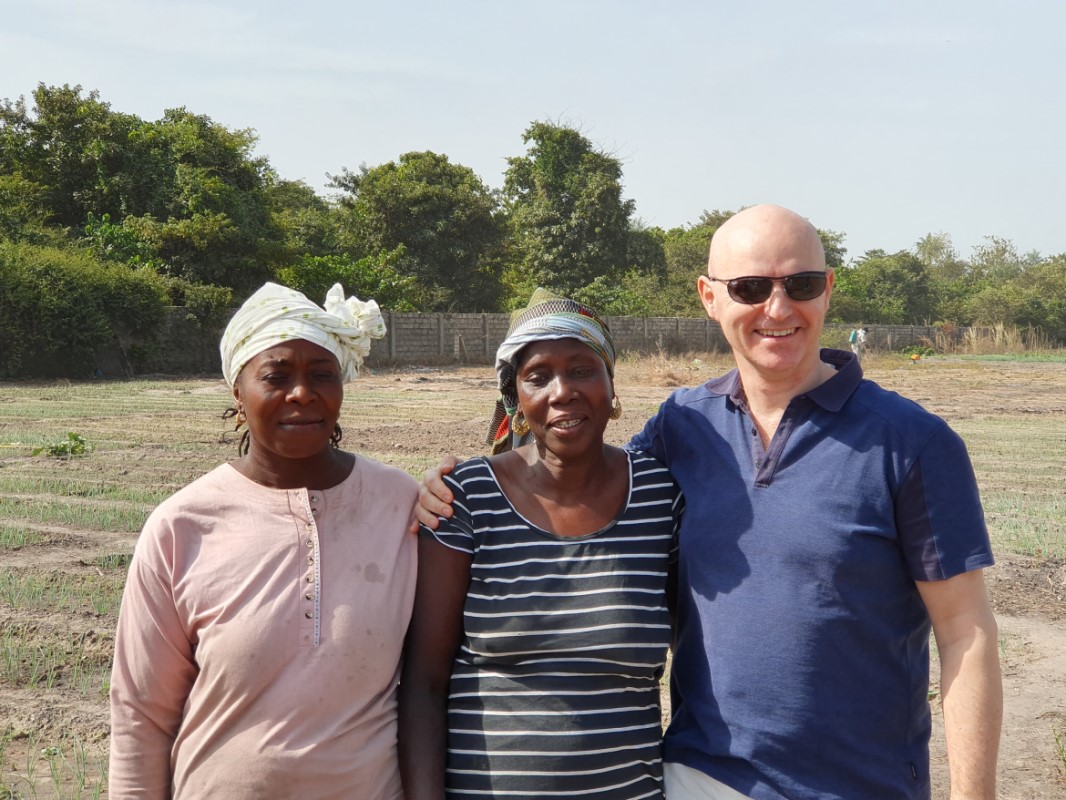
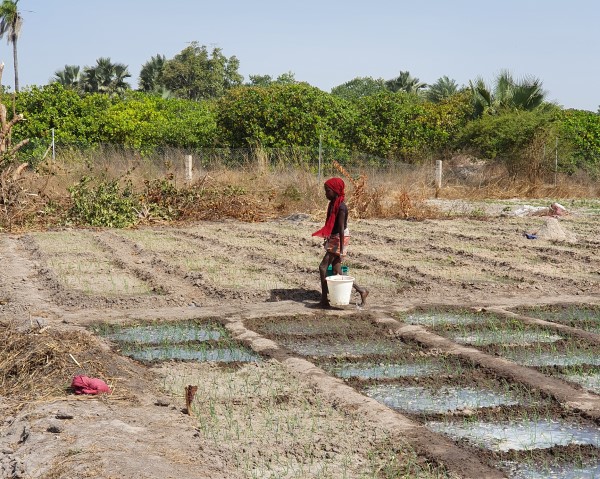
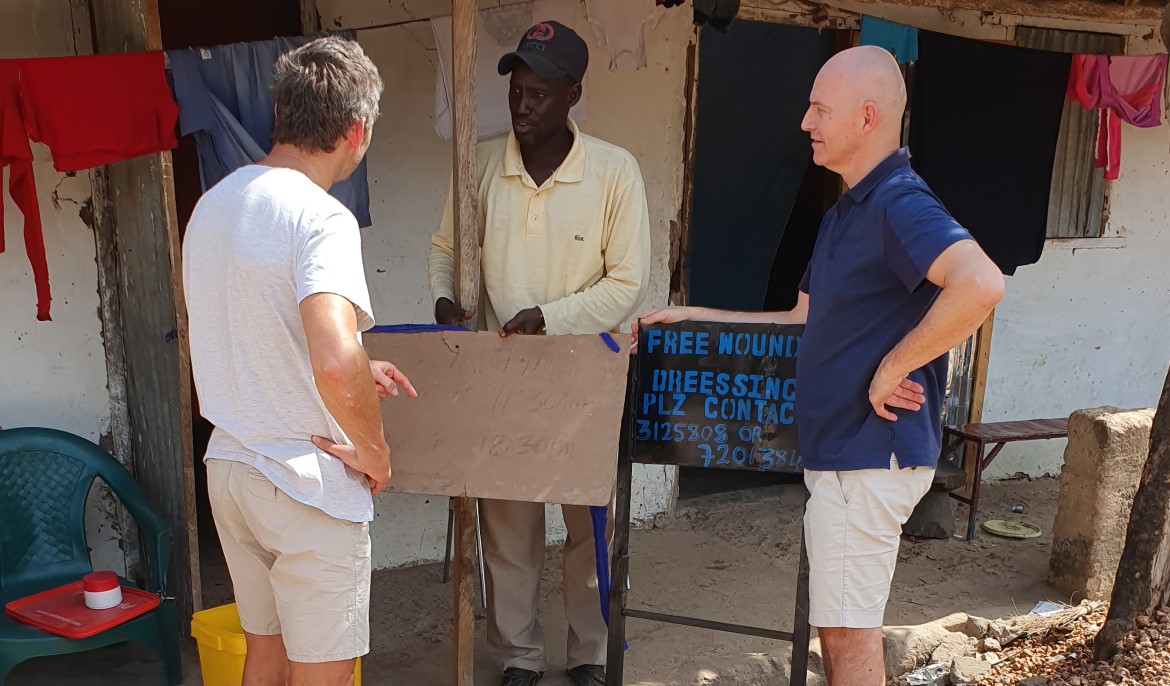
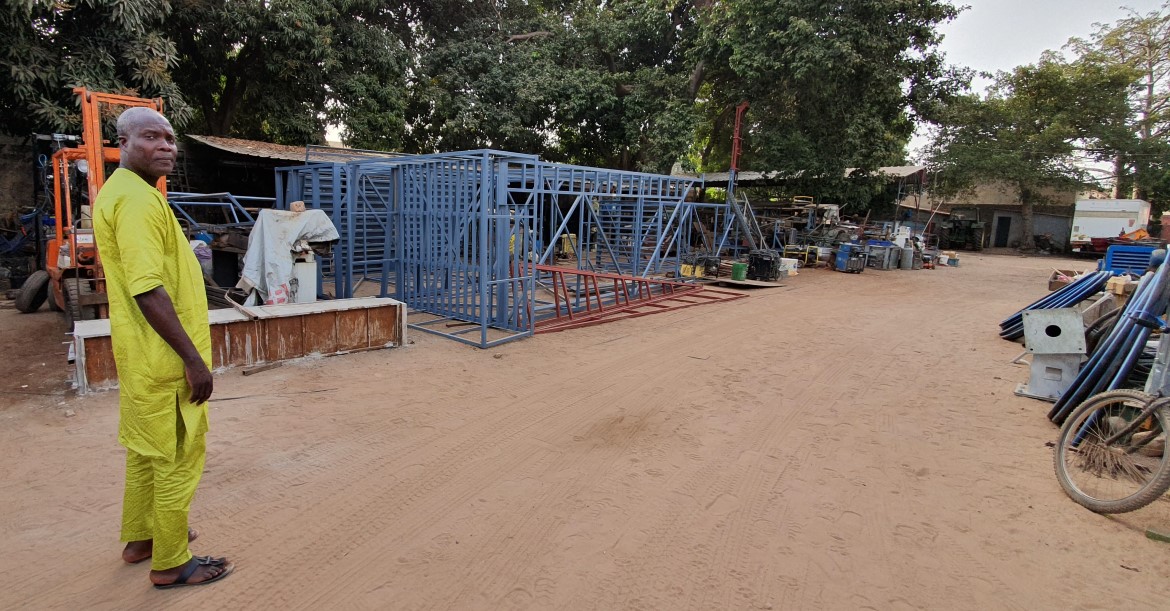
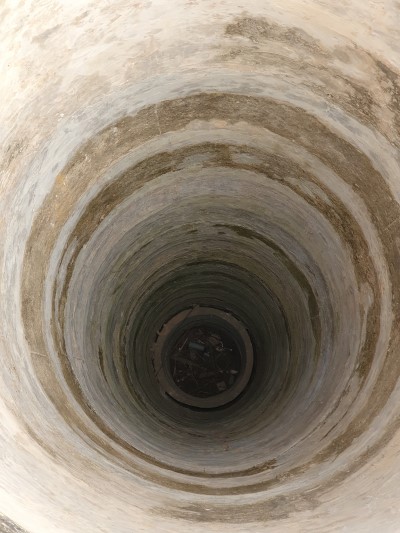 9 a.m. departure to Tujereng, where we have an appointment with the local VDC, who has applied for the installation of a water pump, for their population, about 500 people (500 means, between 300 and 700). There are no exact figures. The old well, dug by hand, is dry.
9 a.m. departure to Tujereng, where we have an appointment with the local VDC, who has applied for the installation of a water pump, for their population, about 500 people (500 means, between 300 and 700). There are no exact figures. The old well, dug by hand, is dry.